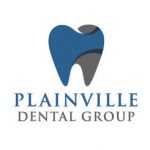Sleep Apnea
Relief for sleep apnea is possible and pain-free with sleep dentistry. Sleep apnea is a serious health issue, but old methods of treatment with CPAP machines can be cumbersome and uncomfortable. Try dental sleep medicine!

Table of Contents
In some cases, sleep apnea can be caused by a collapsing of the vertical dimension of your face. In these cases, opening up your bite and restoring your teeth to their natural height can make a vast difference. Not to mention, it’ll make your teeth look great!
What Are Sleep Apnea Symptoms?
Symptoms you might be suffering from as a result of sleep apnea can include:
- loud snoring
- periods where you stop breathing during sleep as witnessed by someone else
- frequently waking up in the middle of the night with shortness of breath
- waking with a dry or sore mouth
- morning headaches
- insomnia
- attention problems
- being overtired during the day
- and more…
Sleep apnea is a serious condition that, if untreated, can lead to an increase in significant medical conditions, such as diabetes and hypertension.
Sleep Apnea FAQs
Sleep apnea is a sleep disorder where breathing repeatedly stops and starts during sleep. This condition is typically caused by obstructions in the airway (obstructive sleep apnea) or by a failure of the brain to signal breathing muscles (central sleep apnea) properly. It leads to disrupted sleep and can result in various health problems, including daytime fatigue, cardiovascular issues, and difficulty concentrating and mood. Effective treatments include lifestyle changes, breathing devices like CPAP machines, and sometimes surgery.
Treating sleep apnea involves several approaches depending on its severity and type. Lifestyle changes such as losing weight, quitting smoking, and sleeping on one’s side can help reduce symptoms. Medical treatments include using a CPAP (Continuous Positive Airway Pressure) machine that keeps the airway open during sleep, oral appliances that adjust the position of the jaw or tongue, and, in some cases, surgery to remove obstructions or adjust facial structures. Consulting with a healthcare provider to tailor the treatment to the individual’s specific needs is crucial for effective management.
Risk factors for sleep apnea include:
- Obesity increases the likelihood of airway obstruction.
- A narrow airway or enlarged tonsils.
- Being male, men are more prone to the condition than women.
- Older age.
- Family history of sleep apnea.
- Use of alcohol or sedatives, which can relax the throat muscles.
- Smoking can increase inflammation and fluid retention in the airway.
- Certain medical conditions, such as congestive heart failure, type 2 diabetes, or hormonal disorders.
Nasal congestion and the anatomy of the head and neck also increase the risk.

